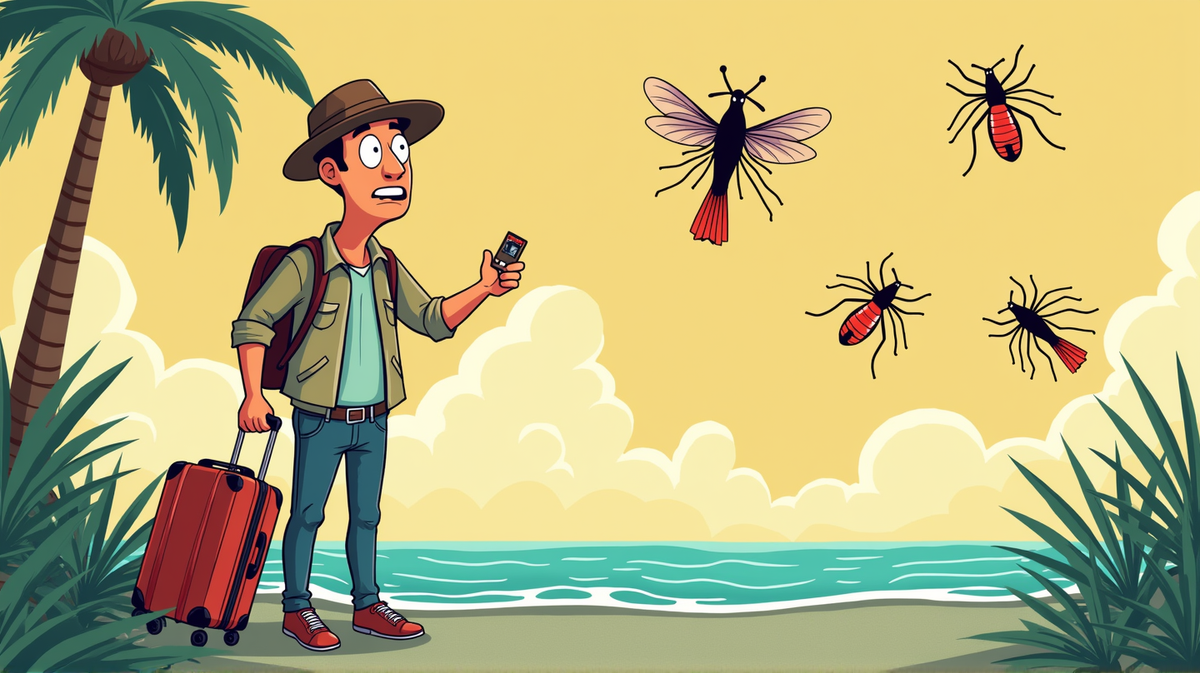Rare Flesh-Eating Parasite Strikes US Traveler: What You Need to Know
A Maryland traveler returned from El Salvador with a rare screwworm infection, prompting CDC intervention. Public health risk remains low.

A troubling yet rare health alert has struck the United States as a case of human screwworm infection has been documented in Maryland. This development follows the return of a traveler from Central America, specifically El Salvador, a region recently affected by a screwworm outbreak. As soon as symptoms were reported, the Centers for Disease Control and Prevention (CDC) swiftly collaborated with the Maryland Department of Health to validate the case. The diagnosis was confirmed by the CDC on August 4. According to Andrew Nixon, a spokesperson for the Department of Health and Human Services, the risk level to public health remains notably low.
What is Myiasis?
Myiasis, or New World screwworm, is a parasitic infestation where fly larvae feed on live tissue. This occurs when female flies deposit eggs near human wounds or orifices such as the nose or ears. These tiny parasites cause significant health challenges if left untreated, as the larvae grow within human tissues, consuming live flesh and leading potentially to fatal outcomes. According to Fox News, myiasis is rare in the U.S., and most cases are travel-related from tropical areas.
The Wider Impact on Livestock
This parasite doesn’t only afflict humans; livestock such as cattle, goats, and sheep are also vulnerable. A screwworm outbreak in livestock could have catastrophic economic repercussions. The U.S. Department of Agriculture (USDA) has acknowledged the threat and announced the creation of a sterile fly facility in Texas. The intent is to manage and reduce the infestation risks. If unchecked, an outbreak in Texas alone could result in a $1.8 billion economic loss due to livestock deaths and associated costs.
International Discrepancies and Future Actions
Interestingly, there have been conflicting reports regarding the origin of the infection. As stated in Fox News, while Fox News attributes the case to travel from El Salvador, Reuters mentioned Guatemala. Despite these inconsistencies, the central message remains unchanged — vigilance is key, yet public risk remains low.
Looking Ahead: Prevention and Risk Management
Thanks to ongoing advancements in health surveillance and proactive measures, both the CDC and USDA are geared toward preventing extensive outbreaks and ensuring public safety. Although no animal cases have been confirmed this year, the initiation of a sterile fly program underscores a commitment to mitigating this parasitic threat.
Travelers keen on basking in the tropical allure of Central American destinations are advised to stay informed and proactive in safeguarding their health. For the latest updates and detailed health advisories, visit Fox News.
In summary, while this alarming piece of news warrants urgency, it serves as a reminder of the modern-day challenges of global travel — as well as the ingenuity and readiness of our health agencies to tackle them head-on.





